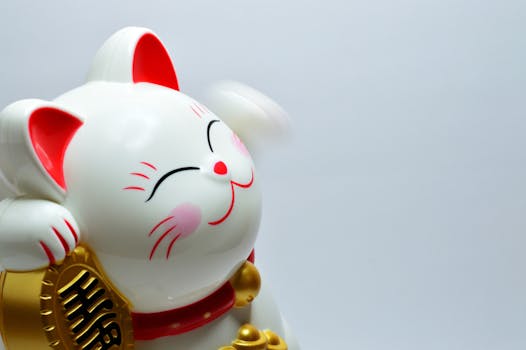The Perception of Luck Across Different Societies
Luck is a fascinating and often elusive concept, prevalent in various forms across different cultures and societies around the world. It is frequently understood as a force that causes good or bad things to happen, guided by more than just merit or action. This article delves into how different societies perceive luck, the implications of these beliefs, and how they influence everyday life and decision-making.
Understanding Luck in Various Cultures
The perception of luck varies widely from one culture to another, each with its own unique traditions, rituals, and beliefs. In Western societies, luck is often seen as a random phenomenon, not necessarily tied to one's actions. However, in many Eastern cultures, luck is closely linked to fate or destiny, often intertwined with spiritual or philosophical beliefs.
Western Perspectives on Luck
In Western cultures, such as those in the United States and Europe, luck is frequently viewed as a chance occurrence that can either be good or bad. This perception is rooted in the region's emphasis on individualism and personal responsibility, where success is commonly attributed to hard work and personal effort rather than external forces.
The concept of "making your own luck" is popular in these societies, suggesting that people can influence their own likelihood of experiencing positive outcomes through their actions. For instance, entrepreneurs in the U.S. often speak about creating opportunities through innovation and persistence (Source: Forbes.com).
Eastern Interpretations of Luck
In contrast, Eastern societies like China and Japan see luck as a more deterministic concept. In these cultures, luck is often perceived as a type of cosmic balance, influenced by one's actions but also by the alignment of the universe. Practices such as Feng Shui in China, which involves arranging one's living or working spaces to attract positive energy, reflect the belief in controlling one's fortune to some extent (Source: chinaculture.org).
The celebration of festivals like Chinese New Year, where specific activities and foods are believed to bring good luck, further illustrates how deeply ingrained these beliefs are in the culture.
Advantages and Disadvantages of Different Perceptions
The belief in luck as a random occurrence can promote a sense of humility and understanding that not everything is within one's control. This can reduce pressure and stress when outcomes are negative despite one's best efforts. However, it may also lead to a lack of motivation in some individuals who might feel that outcomes are out of their hands.
On the other hand, seeing luck as something influenced by one's actions or the universe can motivate individuals to follow cultural practices and personal habits that promote positive outcomes. However, this can also lead to superstition or an excessive reliance on rituals, potentially overshadowing practical efforts.
Practical Examples of Luck in Action
In business, understanding local beliefs about luck can be crucial. For instance, when Western companies enter Asian markets, acknowledging local practices like choosing auspicious dates for product launches or important meetings can be vital for success (Source: Harvard Business Review).
In sports, athletes from different cultures often have rituals or carry charms that they believe will bring them luck during performances. These practices show the psychological impact and comforting effect of luck-related beliefs.
Conclusion
The perception of luck varies significantly across different societies, each offering unique insights into the human experience and the diverse ways in which our environments and beliefs shape our worldview. Whether viewed as a random chance or a cosmic alignment, the concept of luck plays a critical role in cultural identity and personal belief systems.
Understanding these differences can enhance cross-cultural communication and cooperation, making it a valuable consideration for anyone working in a global environment. As we navigate the complexities of various cultural landscapes, acknowledging and respecting each society's beliefs about luck can lead to more meaningful and successful interactions.
For readers interested in exploring how different cultures influence business practices, personal relationships, or even sporting events, delving deeper into the local customs and beliefs about luck can provide valuable insights and a broader perspective on the world.

.png)





